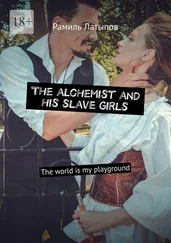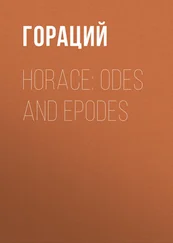Horace Walpole - Horace Walpole and his World
Здесь есть возможность читать онлайн «Horace Walpole - Horace Walpole and his World» — ознакомительный отрывок электронной книги совершенно бесплатно, а после прочтения отрывка купить полную версию. В некоторых случаях можно слушать аудио, скачать через торрент в формате fb2 и присутствует краткое содержание. Жанр: foreign_prose, foreign_antique, на английском языке. Описание произведения, (предисловие) а так же отзывы посетителей доступны на портале библиотеки ЛибКат.
- Название:Horace Walpole and his World
- Автор:
- Жанр:
- Год:неизвестен
- ISBN:нет данных
- Рейтинг книги:4 / 5. Голосов: 1
-
Избранное:Добавить в избранное
- Отзывы:
-
Ваша оценка:
- 80
- 1
- 2
- 3
- 4
- 5
Horace Walpole and his World: краткое содержание, описание и аннотация
Предлагаем к чтению аннотацию, описание, краткое содержание или предисловие (зависит от того, что написал сам автор книги «Horace Walpole and his World»). Если вы не нашли необходимую информацию о книге — напишите в комментариях, мы постараемся отыскать её.
Horace Walpole and his World — читать онлайн ознакомительный отрывок
Ниже представлен текст книги, разбитый по страницам. Система сохранения места последней прочитанной страницы, позволяет с удобством читать онлайн бесплатно книгу «Horace Walpole and his World», без необходимости каждый раз заново искать на чём Вы остановились. Поставьте закладку, и сможете в любой момент перейти на страницу, на которой закончили чтение.
Интервал:
Закладка:
“The surprise the pictures gave me is again renewed; accustomed for many years to see nothing but wretched daubs and varnished copies at auctions, I look at these as enchantment. My own description of them seems poor; but shall I tell you truly, the majesty of Italian ideas almost sinks before the warm nature of Flemish colouring. Alas! don’t I grow old? My young imagination was fired with Guido’s ideas: must they be plump as Abishag to warm me now? Does great youth feel with poetic limbs, as well as see with poetic eyes? In one respect I am very young, I cannot satiate myself with looking: an incident contributed to make me feel this more strongly. A party arrived, just as I did, to see the house, a man and three women in riding-dresses, and they rode post through the apartments. I could not hurry before them fast enough; they were not so long in seeing for the first time, as I could have been in one room, to examine what I knew by heart. I remember formerly being often diverted with this kind of seers ; they come, ask what such a room is called, in which Sir Robert lay, write it down, admire a lobster or a cabbage in a market-piece, dispute whether the last room was green or purple, and then hurry to the inn for fear the fish should be overdressed. How different my sensations! not a picture here but recalls a history; not one, but I remember in Downing-street or Chelsea, where queens and crowds admired them, though seeing them as little as these travellers!
“When I had drunk tea, I strolled into the garden; they told me it was now called the pleasure-ground . What a dissonant idea of pleasure! those groves, those allées , where I have passed so many charming moments, are now stripped up or overgrown—many fond paths I could not unravel, though with a very exact clew in my memory: I met two gamekeepers, and a thousand hares! In the days when all my soul was tuned to pleasure and vivacity (and you will think, perhaps, it is far from being out of tune yet), I hated Houghton and its solitude; yet I loved this garden, as now, with many regrets, I love Houghton; Houghton, I know not what to call it, a monument of grandeur or ruin! How I have wished this evening for Lord Bute! how I could preach to him! For myself, I do not want to be preached to; I have long considered, how every Balbec must wait for the chance of a Mr. Wood. The servants wanted to lay me in the great apartment—what, to make me pass my night as I have done my evening! It were like proposing to Margaret Roper to be a duchess in the court that cut off her father’s head, and imagining it would please her. I have chosen to sit in my father’s little dressing-room, and am now by his scrutoire, where, in the height of his fortune, he used to receive the accounts of his farmers, and deceive himself, or us, with the thoughts of his economy. How wise a man at once, and how weak! For what has he built Houghton? for his grandson to annihilate, or for his son to mourn over. If Lord Burleigh could rise and view his representative driving the Hatfield stage, he would feel as I feel now. Poor little Strawberry! at least, it will not be stripped to pieces by a descendant! You will find all these fine meditations dictated by pride, not by philosophy. Pray consider through how many mediums philosophy must pass, before it is purified—
“‘– how often must it weep, how often burn!’
“My mind was extremely prepared for all this gloom by parting with Mr. Conway yesterday morning; moral reflections or commonplaces are the livery one likes to wear, when one has just had a real misfortune. He is going to Germany: I was glad to dress myself up in transitory Houghton, in lieu of very sensible concern. To-morrow I shall be distracted with thoughts, at least images of very different complexion. I go to Lynn, and am to be elected on Friday. I shall return hither on Saturday, again alone, to expect Burleighides on Sunday, whom I left at Newmarket. I must once in my life see him on his grandfather’s throne.
“ Epping , Monday night, thirty-first .—No, I have not seen him; he loitered on the road, and I was kept at Lynn till yesterday morning. It is plain I never knew for how many trades I was formed, when at this time of day I can begin electioneering, and succeed in my new vocation. Think of me, the subject of a mob, who was scarce ever before in a mob, addressing them in the town-hall, riding at the head of two thousand people through such a town as Lynn, dining with above two hundred of them, amid bumpers, huzzas, songs, and tobacco, and finishing with country dancing at a ball and sixpenny whist! I have borne it all cheerfully; nay, have sat hours in conversation , the thing upon earth that I hate; have been to hear misses play on the harpsichord, and to see an alderman’s copies of Rubens and Carlo Marat. Yet to do the folks justice, they are sensible, and reasonable, and civilised; their very language is polished since I lived among them. I attribute this to their more frequent intercourse with the world and the capital, by the help of good roads and postchaises, which, if they have abridged the King’s dominions, have at least tamed his subjects. Well, how comfortable it will be to-morrow, to see my parroquet, to play at loo, and not be obliged to talk seriously! The Heraclitus of the beginning of this letter will be overjoyed on finishing it to sign himself your old friend,
“Democritus.“P.S. I forgot to tell you that my ancient aunt Hammond came over to Lynn to see me; not from any affection, but curiosity. The first thing she said to me, though we have not met these sixteen years, was, ‘Child, you have done a thing to-day, that your father never did in all his life; you sat as they carried you,—he always stood the whole time.’ ‘Madam,’ said I, ‘when I am placed in a chair, I conclude I am to sit in it; besides, as I cannot imitate my father in great things, I am not at all ambitious of mimicking him in little ones.’ I am sure she proposes to tell her remarks to my uncle Horace’s ghost, the instant they meet.”
The King’s marriage followed a few months later:
“Arlington Street, Sept. 10, 1761.“When we least expected the Queen, she came, after being ten days at sea, but without sickness for above half-an-hour. She was gay the whole voyage, sung to her harpsichord, and left the door of her cabin open. They made the coast of Suffolk last Saturday, and on Monday morning she landed at Harwich; so prosperously has Lord Anson executed his commission. She lay that night at your old friend Lord Abercorn’s, at Witham in Essex; and, if she judged by her host, must have thought she was coming to reign in the realm of taciturnity. She arrived at St. James’s a quarter after three on Tuesday the 8th. When she first saw the Palace she turned pale: the Duchess of Hamilton smiled. ‘My dear Duchess,’ said the Princess, ‘ you may laugh; you have been married twice; but it is no joke to me.’ Is this a bad proof of her sense? On the journey they wanted her to curl her toupet. ‘No, indeed,’ said she, ‘I think it looks as well as those of the ladies who have been sent for me: if the King would have me wear a periwig, I will; otherwise I shall let myself alone.’ The Duke of York gave her his hand at the garden-gate: her lips trembled, but she jumped out with spirit. In the garden the King met her; she would have fallen at his feet; he prevented and embraced her, and led her into the apartments, where she was received by the Princess of Wales and Lady Augusta: these three princesses only dined with the King. At ten the procession went to chapel, preceded by unmarried daughters of peers, and peeresses in plenty. The new Princess was led by the Duke of York and Prince William; the Archbishop married them; the King talked to her the whole time with great good humour, and the Duke of Cumberland gave her away. She is not tall, nor a beauty; pale, and very thin; but looks sensible, and is genteel. Her hair is darkish and fine; her forehead low, her nose very well, except the nostrils spreading too wide; her mouth has the same fault, but her teeth are good. 32 32 “Queen Charlotte had always been if not ugly, at least ordinary, but in her later years her want of personal charms became of course less observable, and it used to be said that she was grown better looking. I one day said something to this effect to Colonel Disbrowe, her Chamberlain. ‘Yes,’ replied he, ‘I do think that the bloom of her ugliness is going off.’”—Croker.
She talks a good deal, and French tolerably; possesses herself, is frank, but with great respect to the King. After the ceremony, the whole company came into the drawing-room for about ten minutes, but nobody was presented that night. The Queen was in white and silver; an endless mantle of violet-coloured velvet, lined with ermine, and attempted to be fastened on her shoulder by a bunch of large pearls, dragged itself and almost the rest of her clothes halfway down her waist. On her head was a beautiful little tiara of diamonds; a diamond necklace, and a stomacher of diamonds, worth three score thousand pounds, which she is to wear at the Coronation too. Her train was borne by the ten bridesmaids, Lady Sarah Lenox, Lady Caroline Russell, Lady Caroline Montagu, Lady Harriot Bentinck, Lady Anne Hamilton, Lady Essex Kerr (daughters of Dukes of Richmond, Bedford, Manchester, Portland, Hamilton, and Roxburgh); and four daughters of the Earls of Albemarle, Brook, Harcourt, and Ilchester,—Lady Elizabeth Keppel, Louisa Greville, Elizabeth Harcourt, and Susan Fox Strangways: their heads crowned with diamonds, and in robes of white and silver. Lady Caroline Russell is extremely handsome; Lady Elizabeth Keppel very pretty; but with neither features nor air, nothing ever looked so charming as Lady Sarah Lenox; she has all the glow of beauty peculiar to her family. As supper was not ready, the Queen sat down, sung, and played on the harpsichord to the Royal Family, who all supped with her in private. They talked of the different German dialects; the King asked if the Hanoverian was not pure—‘Oh, no, sir,’ said the Queen; ‘it is the worst of all.’—She will not be unpopular.
Интервал:
Закладка:
Похожие книги на «Horace Walpole and his World»
Представляем Вашему вниманию похожие книги на «Horace Walpole and his World» списком для выбора. Мы отобрали схожую по названию и смыслу литературу в надежде предоставить читателям больше вариантов отыскать новые, интересные, ещё непрочитанные произведения.
Обсуждение, отзывы о книге «Horace Walpole and his World» и просто собственные мнения читателей. Оставьте ваши комментарии, напишите, что Вы думаете о произведении, его смысле или главных героях. Укажите что конкретно понравилось, а что нет, и почему Вы так считаете.












